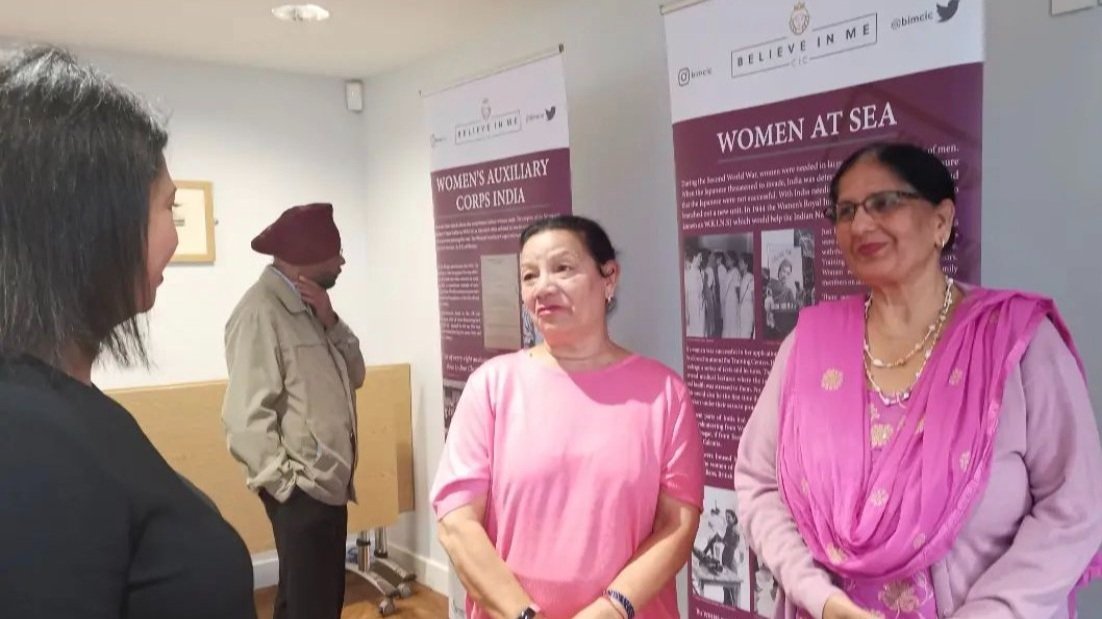Stories of Indian women in saris with Sikh Elders
Kiran Sahota speaking to the Sikh Elders
One of my favourite collaborations, whenever I undertake projects, is with Leeds City Museum. There is such a big South Asian community with lots of stories to share and now with the Indian Women and War project collaboration coming to Leeds this was no different. Before you ask, yes there was a rail strike but at this point I am used to it and that did not stop the learning day pressing ahead.
This community day was to showcase the films and the exhibition we had curated for the Indian Women and War project and engage with audiences about their stories. I was working with a Leeds based community group Silk Elders, a support service for Punjabi Elders. I had invited the group out to the museum as the theme was around women and saris.
Over the years we have seen women in saris in the magazines, social media, television and more mainstream. Just like the WRINS where they wore saris on the docks in Calcutta, these women wanted to share their stories of when they wore saris when they arrived in the UK in the 1950s and 1960s. It was going to be a lively day, full of learning.
The women were keen to learn more about how they did not know about Indian women wearing their saris whilst they were training in India on the ships with the Indian navy. The main question asked was how the Indian women kept their white saris clean whilst working on the ships. The film screening was an eye opener of a history that they did not know. Many of the women in the group had a story of a male relative that had contributed to the Second World War and the women they recalled were looking after the land and children.
More stories of Partition and the effects it had on their families were shared as it split families up and brought memories of a time when they could think what would happen to them. I leant from the ladies that even when their families decided to migrate to the UK in search for a better life, it was a tough decision leaving the country they knew and the language that they were accustomed to. The UK would be so different and without knowing what the future had in store for them, were they going to be happy?
It was a great day as I had also learnt so much from the women their personal stories. It was also nice to host the event in the museum as for many of the women it was their first time coming to the museum. The research we uncovered certainly helped fill the gaps of knowledge these women had about who contributed to the global wars and the roles that they played. Indian women in saris were dominating and I am sure that there will be more stories to share.
Kiran Sahota with the Sikh Elders and Leeds City Museum team


